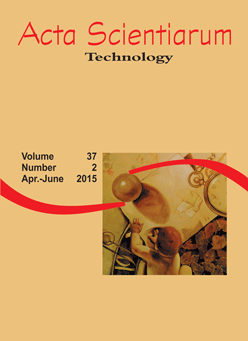<b>The modeling and simulation of thermal based modified solid oxide fuel cell (SOFC) for grid-connected systems
DOI:
https://doi.org/10.4025/actascitechnol.v37i2.24941Keywords:
solid oxide fuel cell, thermal modified model, power conditioning unit, infinite bus, grid connected.Abstract
This paper presents a thermal based modified dynamic model of a Solid Oxide Fuel Cell (SOFC) for grid-connected systems. The proposed fuel cell model involves ohmic, activation and concentration voltage losses, thermal dynamics, methanol reformer, fuel utilization factor and power limiting module. A power conditioning unit (PCU), which consists of a DC-DC boost converter and a DC-AC voltage-source inverter (VSI), their controller, transformer and filter, is designed for grid-connected systems. The voltage-source inverter with six Insulated Gate Bipolar Transistor (IGBT) switches inverts the DC voltage that comes from the converter into a sinusoidal voltage synchronized with the grid. The simulations and modeling of the system are developed on Matlab/Simulink environment. The performance of SOFC with converter is examined under step and random load conditions. The simulation results show that the designed boost converter for the proposed thermal based modified SOFC model has fairly followed different DC load variations. Finally, the AC bus of 400 Volt and 50 Hz is connected to a single-machine infinite bus (SMIB) through a transmission line. The real and reactive power managements of the inverter are analyzed by an infinite bus system. Thus, the desired nominal values are properly obtained by means of the inverter controller.
Â
Downloads
Downloads
Published
How to Cite
Issue
Section
License
DECLARATION OF ORIGINALITY AND COPYRIGHTS
I Declare that current article is original and has not been submitted for publication, in part or in whole, to any other national or international journal.
The copyrights belong exclusively to the authors. Published content is licensed under Creative Commons Attribution 4.0 (CC BY 4.0) guidelines, which allows sharing (copy and distribution of the material in any medium or format) and adaptation (remix, transform, and build upon the material) for any purpose, even commercially, under the terms of attribution.
Read this link for further information on how to use CC BY 4.0 properly.















8.png)




